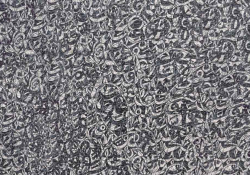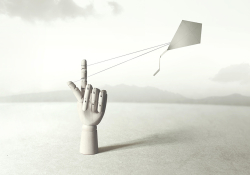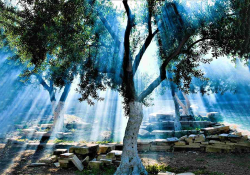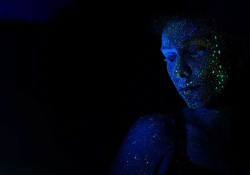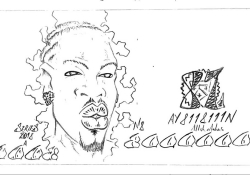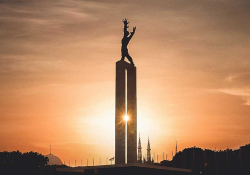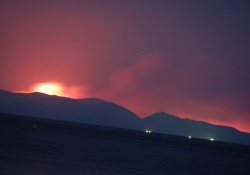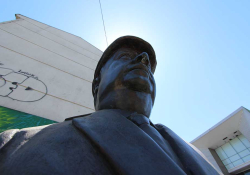Two Poems 27 Years after Tiananmen
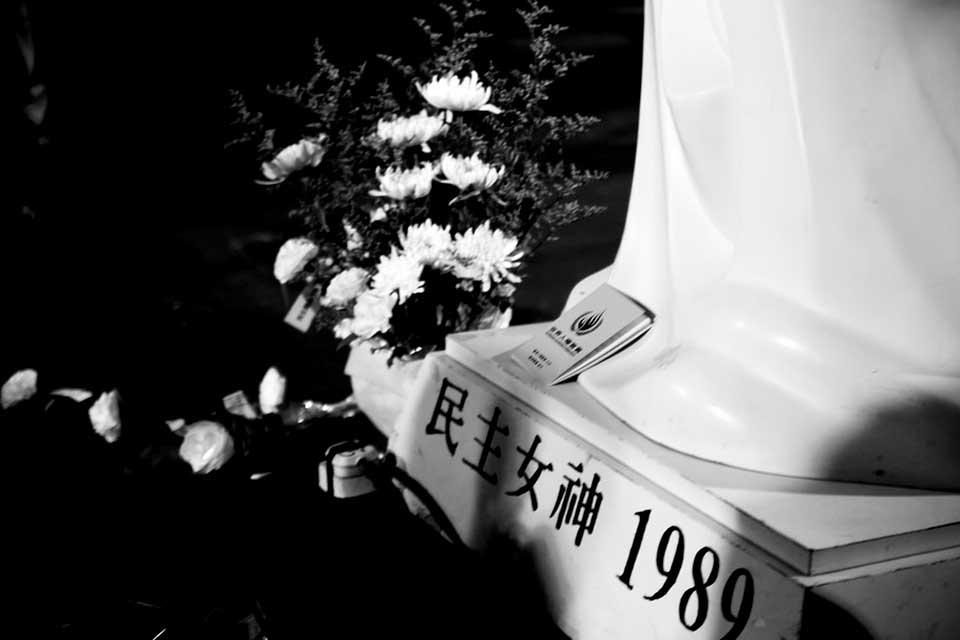
About Freedom
Finishing the booze in the dead of night
Then smashing the glass
This is not freedom
Opening the window
Jumping out, but forgetting which floor of the high-rise you were on
This is not freedom
Writing to your beloved
Confiding all of your private thoughts
This is not freedom
Being ignorant among the crowd demonstrating
In the streets, opening an umbrella against tear gas
This is not freedom
Erecting in the square a white plaster statue of
The Goddess of Democracy, fitting someone else’s mold
This is not freedom
Stopping a tank, telling the tank
To step aside at the very moment history is about to lose
This is not freedom
Shedding tears silently on a beach
Reminding yourself of the solitary situation you are in
This is not freedom
Kissing another man’s wife
Or flaunting one’s own husband while also betraying him
This is not freedom
Seeking a spiritual teacher in Tibet
Then negotiating a coal business deal at a private club in Beijing
This is not freedom
Debating passionately with foreigners in a café
Over the fate of China
This is not freedom
Winning the Nobel Literature Prize
Or Peace Prize and delivering an acceptance speech
This is not freedom
Allowing oneself to curl up in prison
Letting an empty chair sit onstage
This is not freedom
Or allowing yourself to sit onstage
And letting the prison bed which ought to be yours lie empty
This is not freedom
Praying for dawn in the wilderness
Or digging down into darkness
This is not freedom
Sleepwalking in broad daylight
Robbing a bank and obstructing traffic
This is not freedom
Consulting a book
Only to learn who really murdered Hamlet’s father
This is not freedom
Writing protest poetry
And spreading it on the Internet
This is not freedom
Writing for the universe, and not for the Chinese
Yet still having to rely upon others to translate and promote your works
This is not freedom
Condemning tyranny, but also receiving the government’s subsidies
Or living solely on condemnation so as to receive sponsorships from others
This is not freedom
Pretending with opaque symbols
Making an art that nobody understands nor cares about
This is not freedom
Beautifying death, taking “Liberty or Death” to be
More sacred than life
This is not freedom
Letting others shed their blood, so that you
Become famous on behalf of the victims and enjoy longevity
This is not freedom
Having one hundred mistresses
Getting one thousand call girls
This is not freedom
Vacationing or attending ceremonies in Paris
Or Australia
This is not freedom
Going on a North or South Pole expedition
Then writing a diary on the expedition
This is not freedom
Finally meeting one’s true love
Having a happy family and a very lucrative income
This is not freedom
Others praising you to be free
Sincerely admiring or envying your achievements
This is not freedom
My friend, listen to me
Do not put your feet on the table
This is not freedom
Taking off one boot, resting one foot on a chair or bed
Yet still waiting for someone to knock on your door and take possession of you
– That, too, is not freedom
October 10, 2014

Do Not Write Poetry with Your Heart
Do not write poetry with your heart, even if your heart is pure. Poetry is not written by heart.
Do not write poetry with your hand, your hand will tire, and may also backfire. Poetry is not written by hand.
Do not write poetry with your ear, nose, throat or tongue. Such organs are just a pile of junk if not governed by the eye: they are feckless.
Poetry is not a clown, not written by mutilated senses.
Do not write poetry with your eyes, as eyes are only for seeing. A woman’s beauty may remind you of poetry, but no matter how beautiful she may be, she herself is not poetry.
Do not write poetry with your feet or knees; remember, if you want to keep your dignity, you’d better not write poetry.
Do not write poetry with any part of your body, even if it is very sensitive, even if it cannot control itself. It should know self-restraint: by losing it, you are involuntarily exposing the worst of your humanity.
Do not write poetry with ink, nor with blood, let alone tears.
Poetry demands harsh laws and dryness, as Han Feizi and Heraclitus dictated via their maxims.
Do not write poetry with air, and do not write poetry with things found in nature. Poetry is not Nature.
Do not write poetry with mathematics nor with politics, for math is too concrete, and politics too abstract. Poetry is not mathematics, politics, or any social convention.
Do not write poetry with language. Poetry is not language.
Do not write poetry with silence. Silence often sounds like poetry, but who can truly decipher the meaning of silence?
Do not write poetry with memory, nor with amnesia. The act of memory, as with forgetting, is human, but poetry should be different.
Do not write poetry with the sea, nor with salt. Poetry will never rival something so elemental and archaic.
Do not write poetry. Fish do not write poetry, birds do not write poetry.
Poetry itself exists, you do not write it. You do not write it, and it still exists.
I have seen countless verses inscribed on gravestones of the deceased, all owing to time’s grinding, bit by bit, like a cradle slowly sieving out life.
You may write, but it is in vain. When poetry fades away, it is useless if you scream, even more futile if you curse.
September 30, 2013
Translations from the Chinese
By the author


